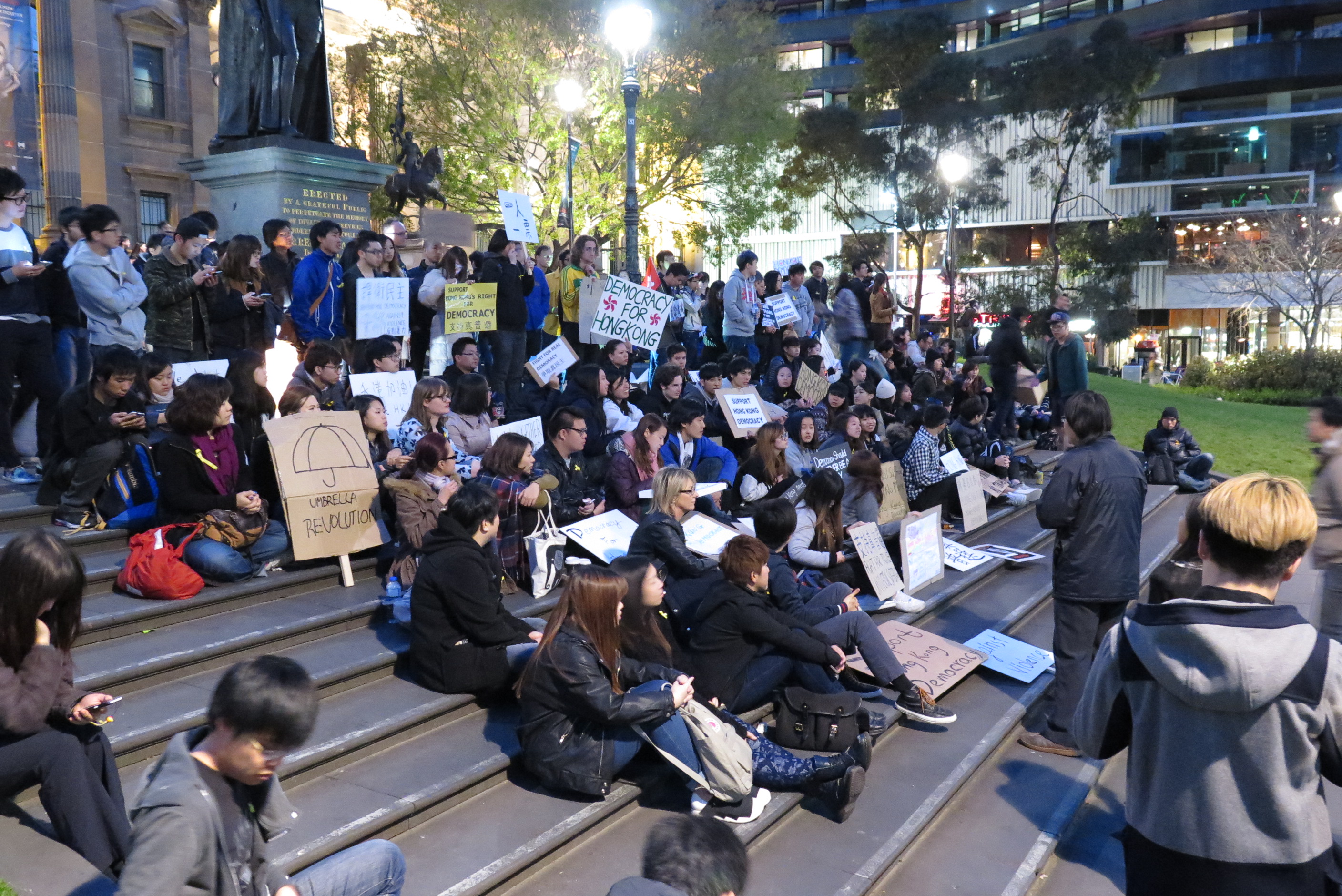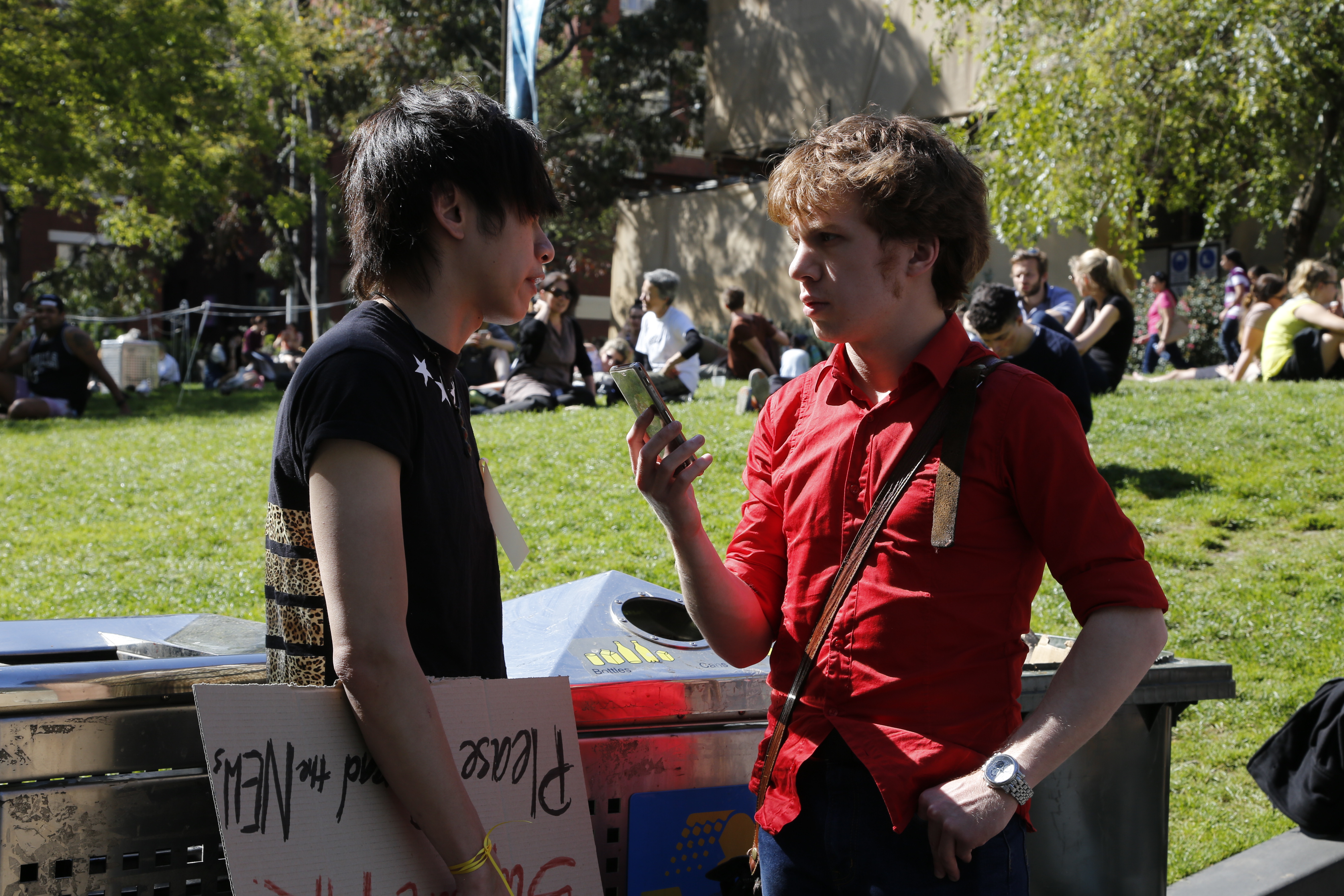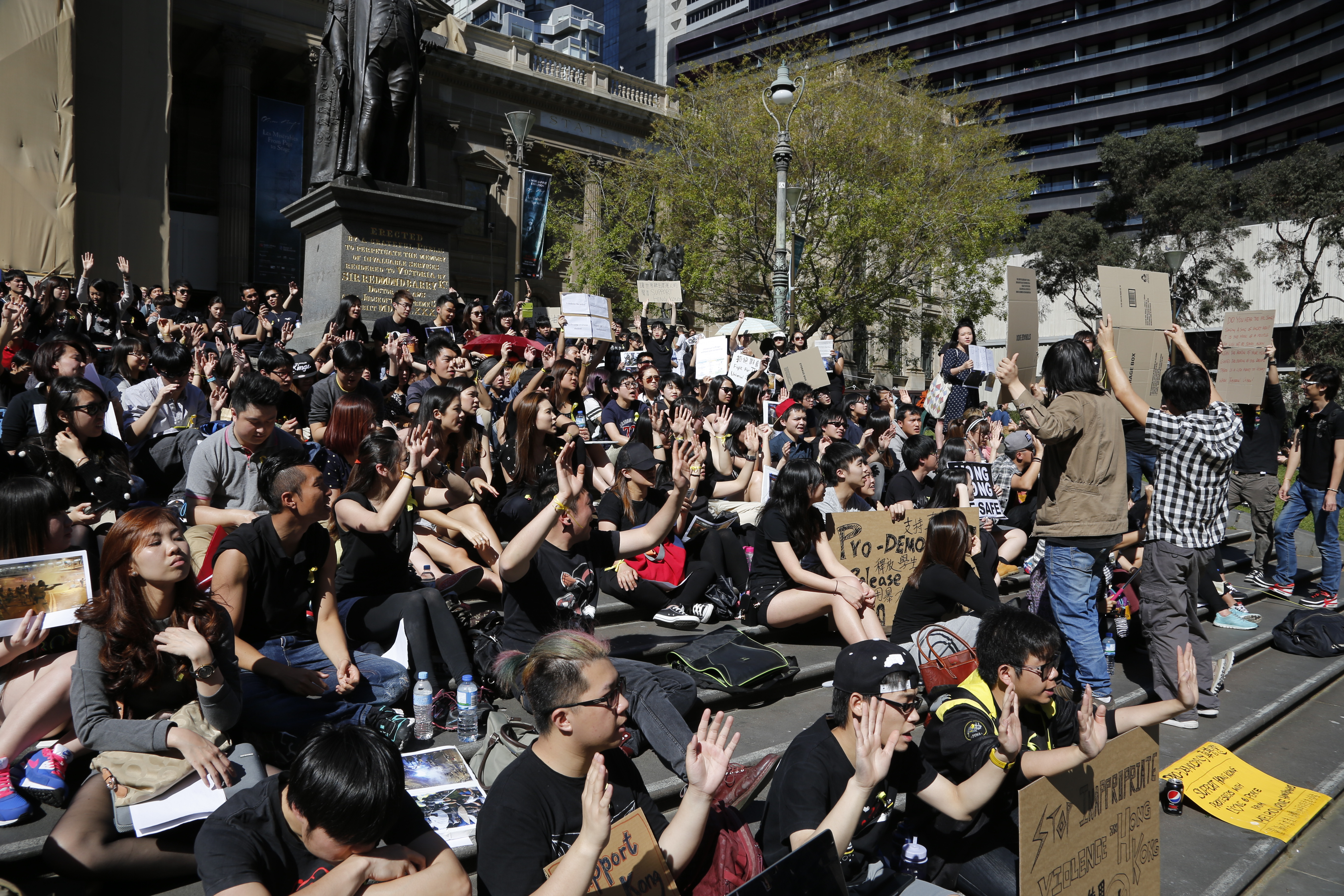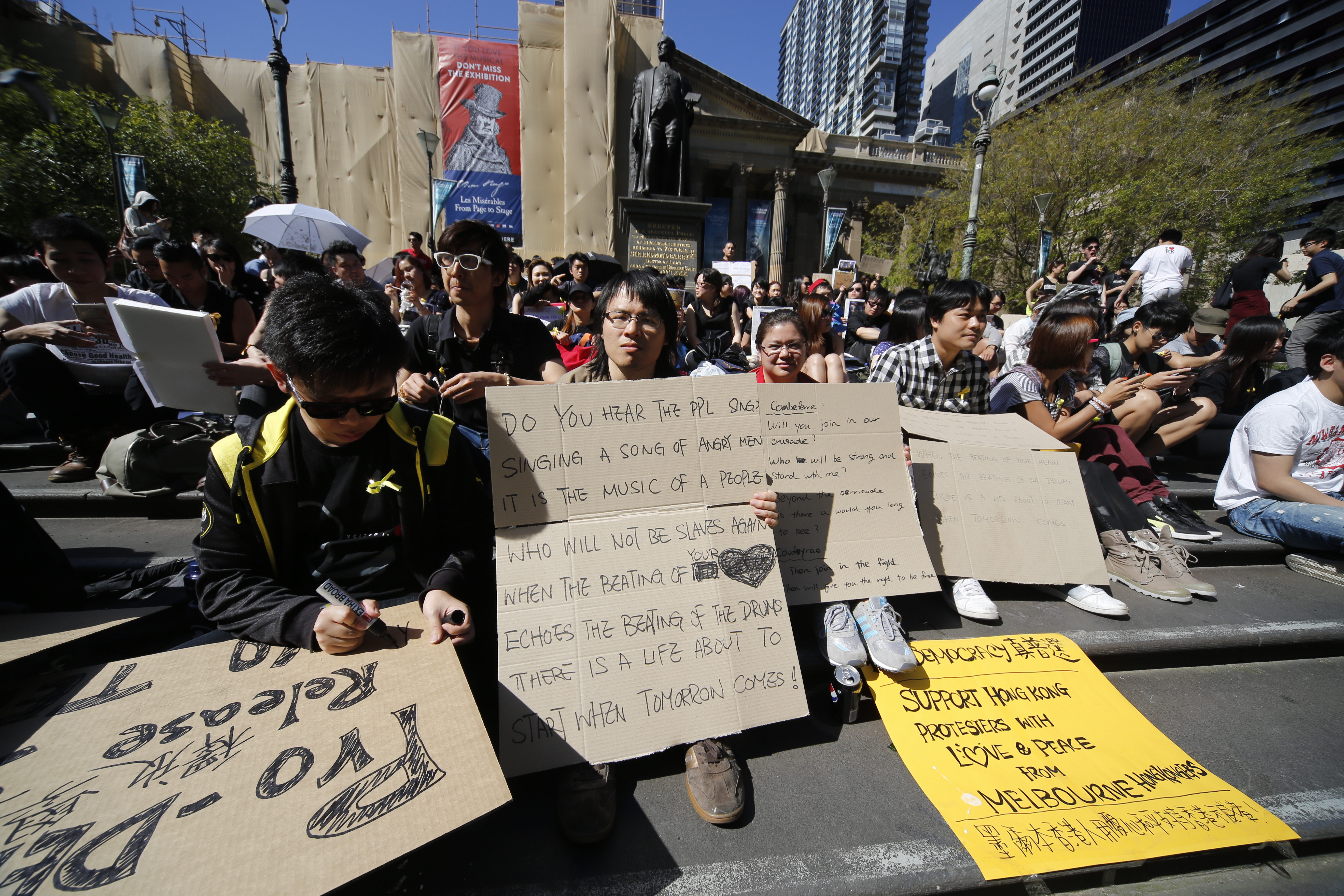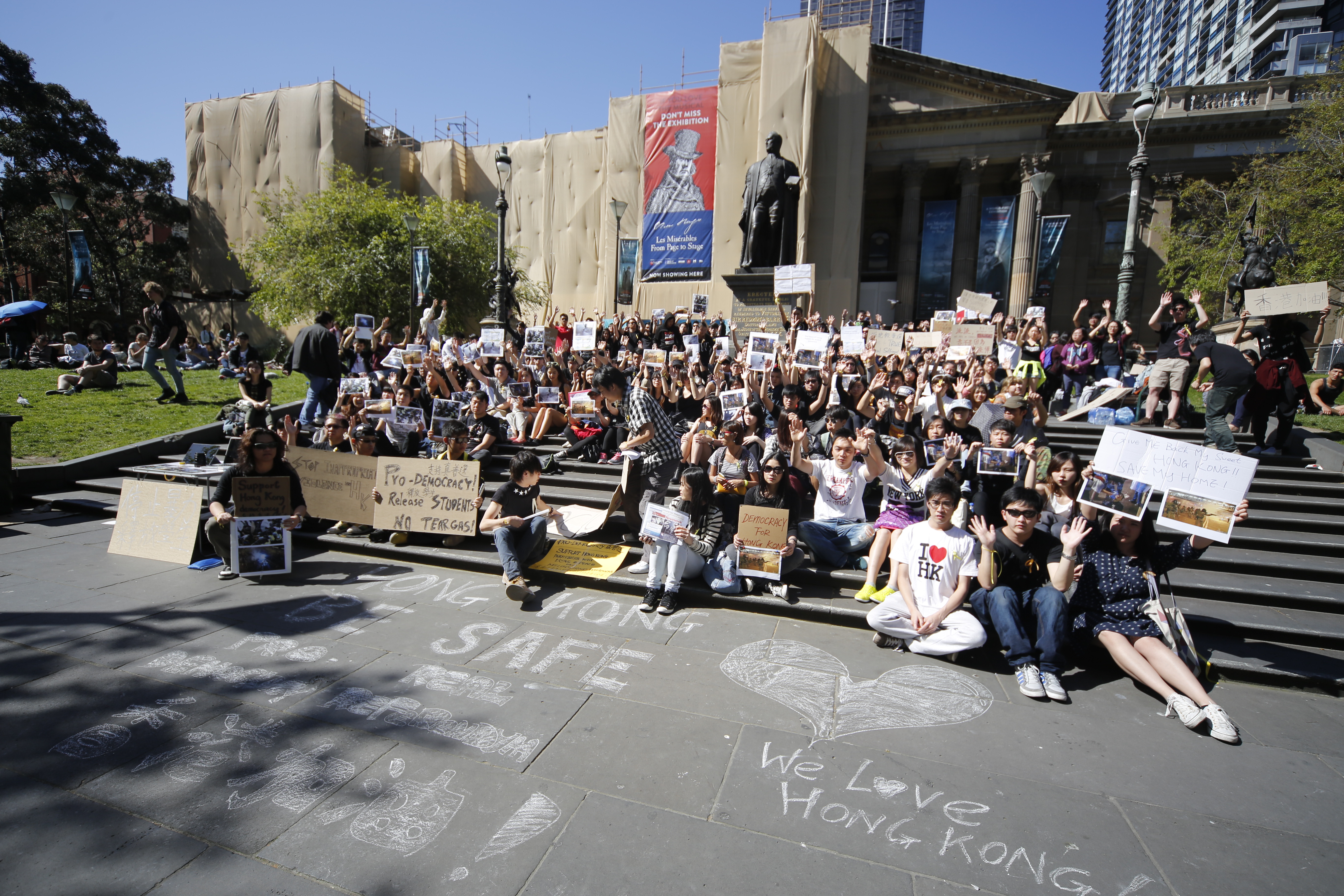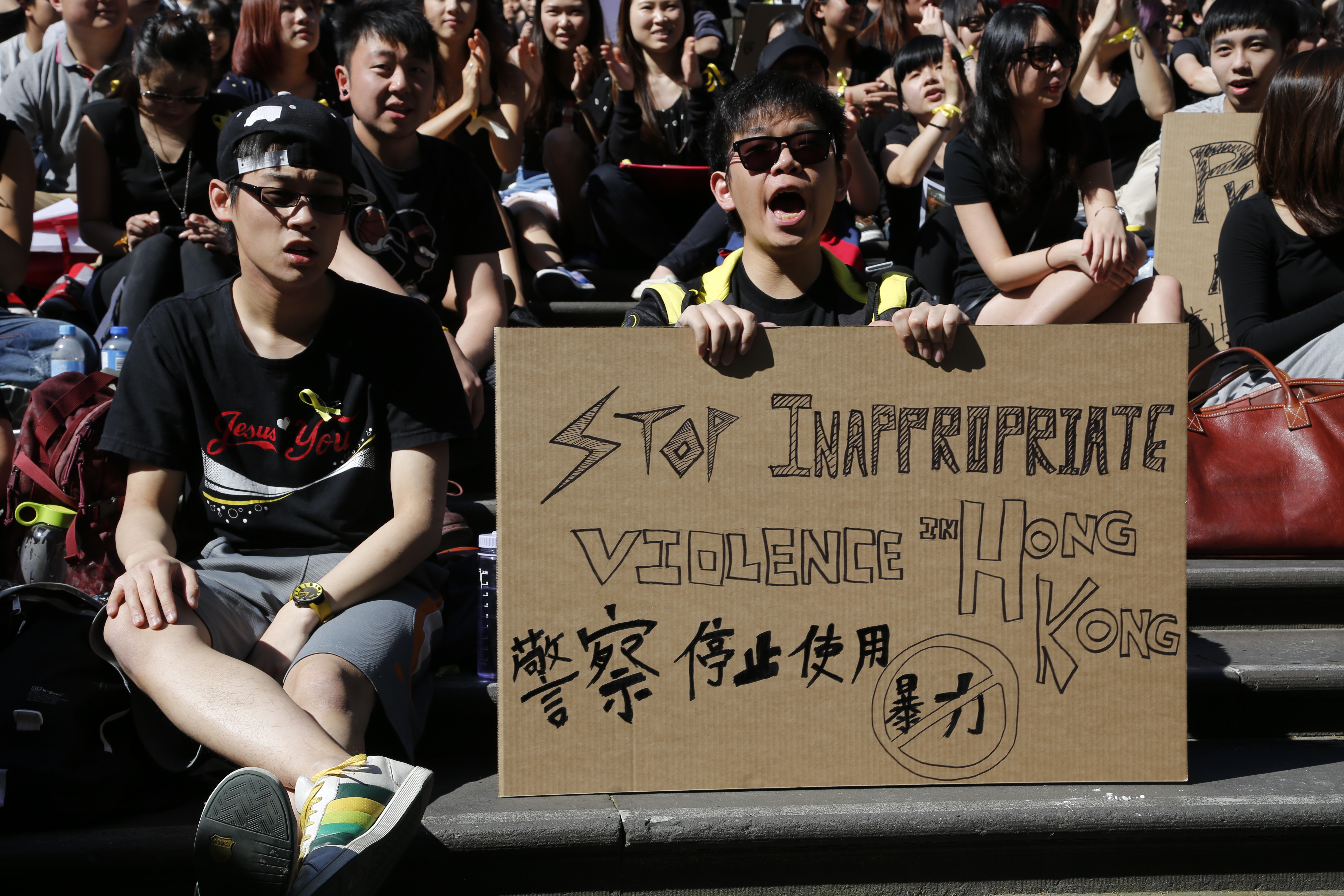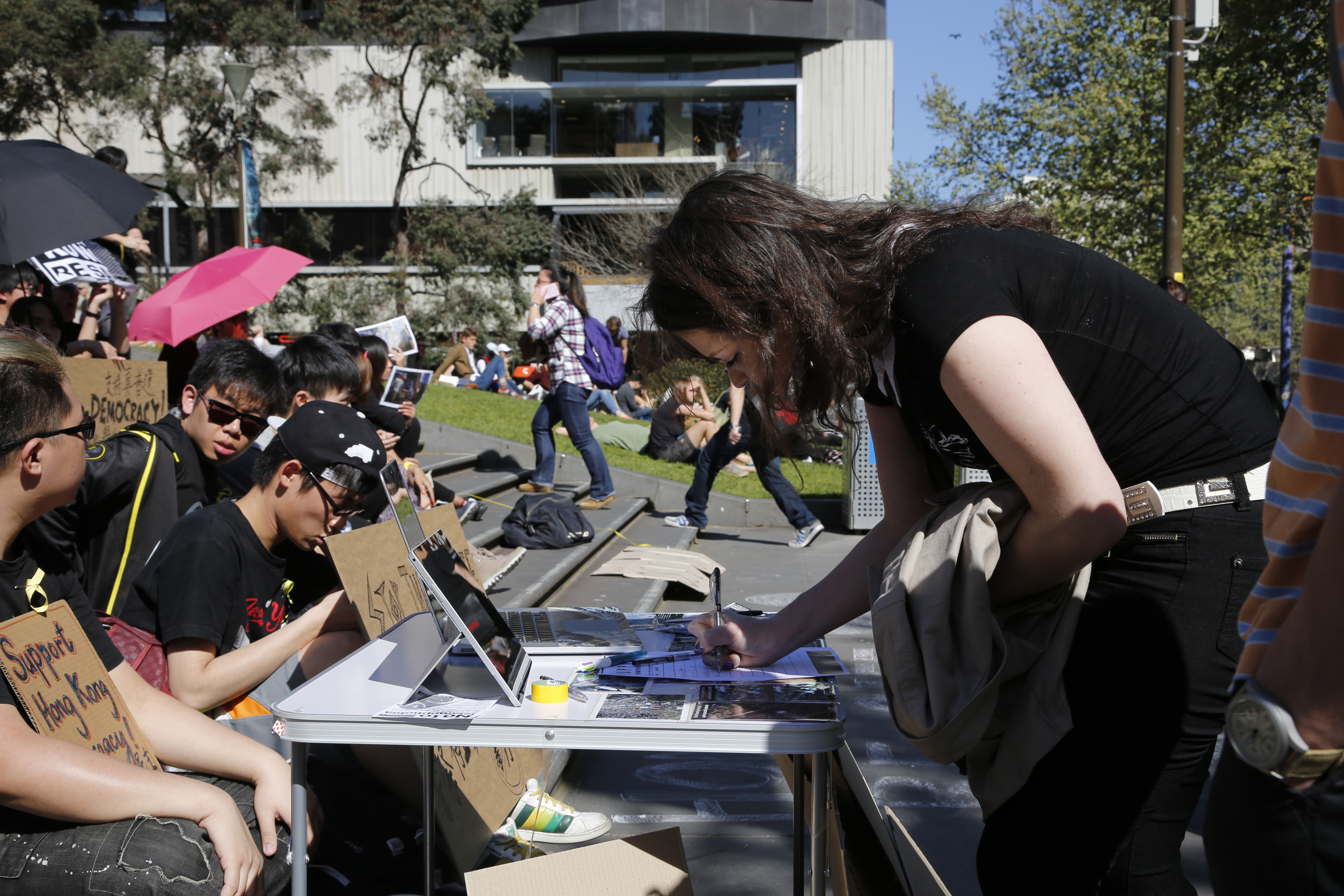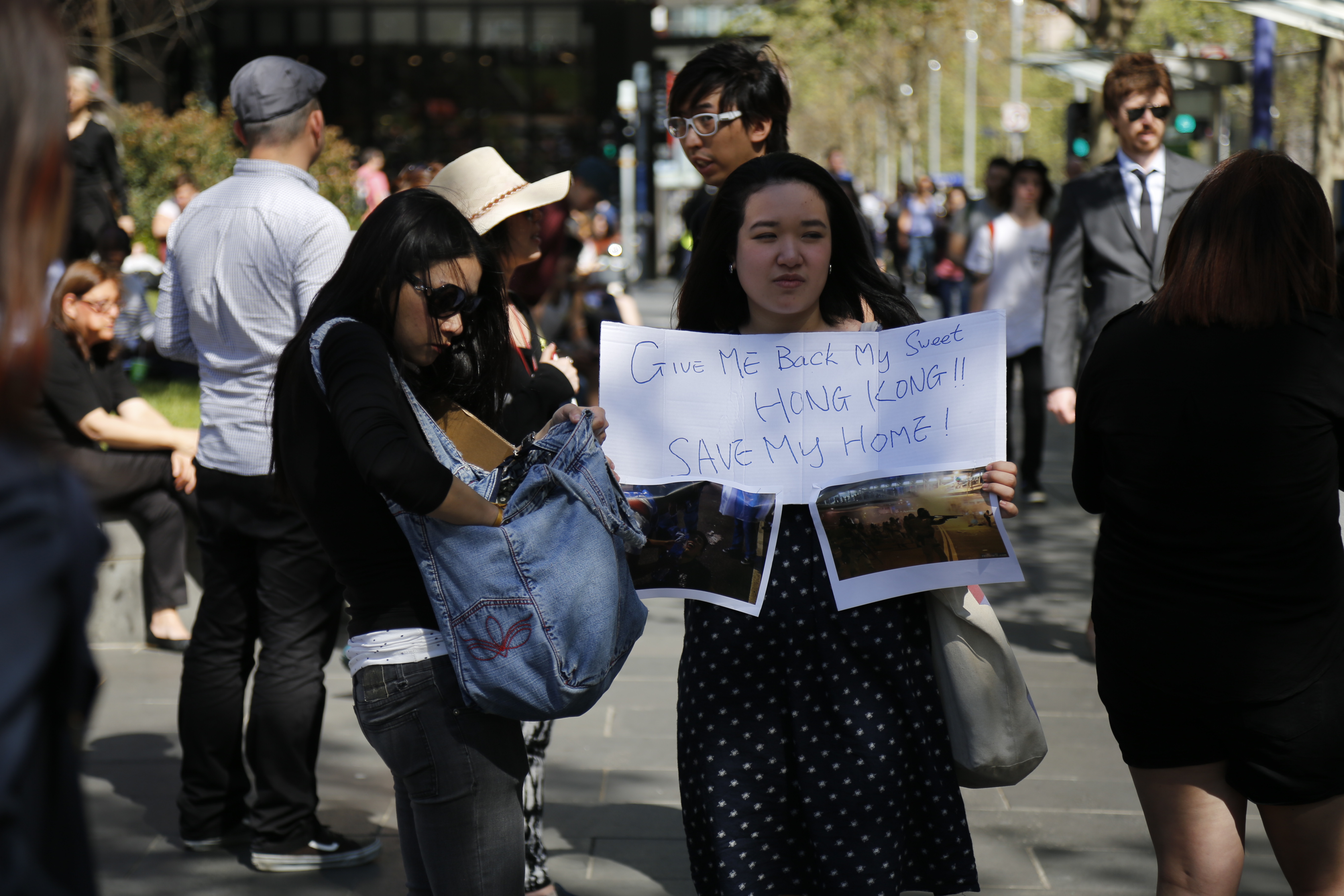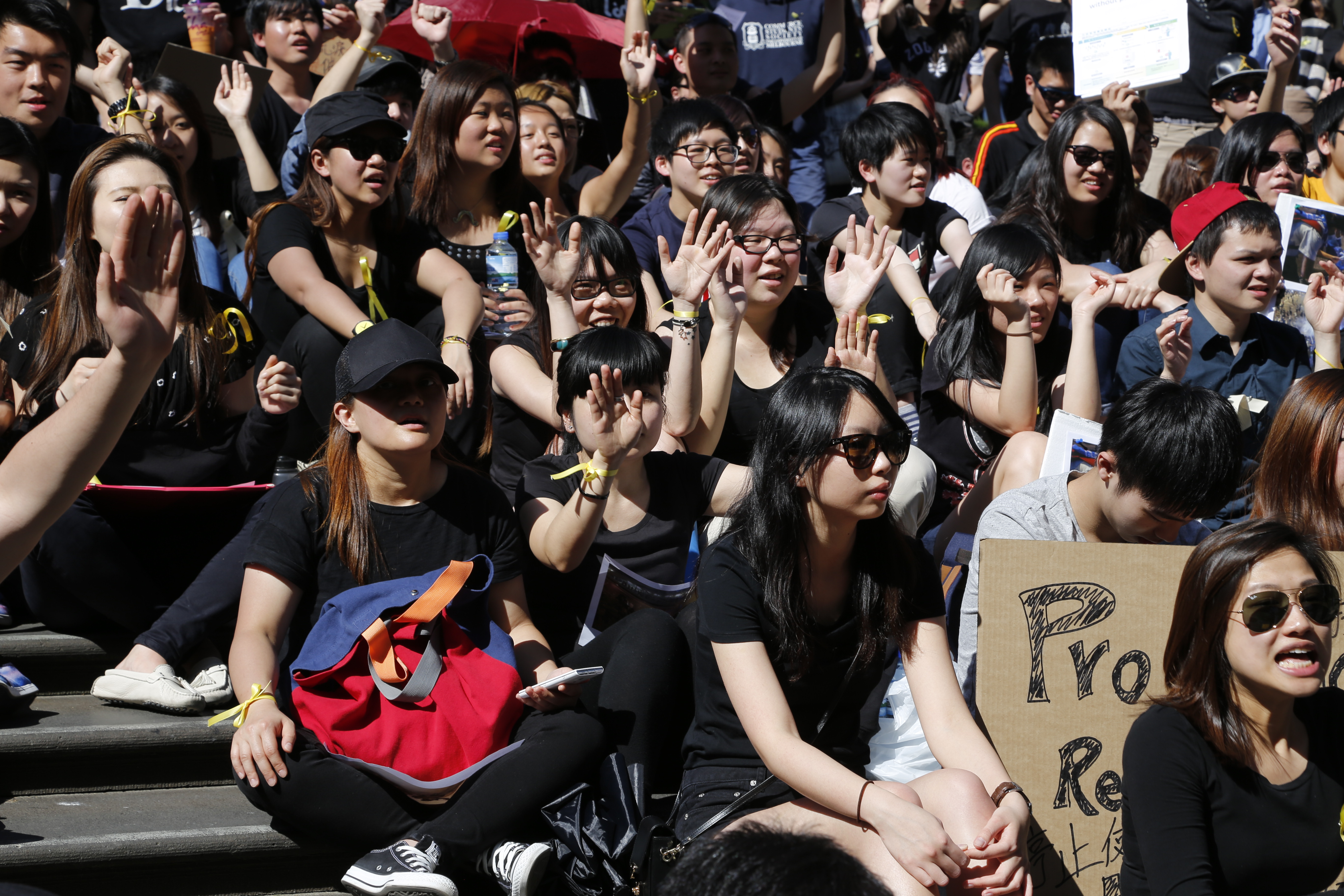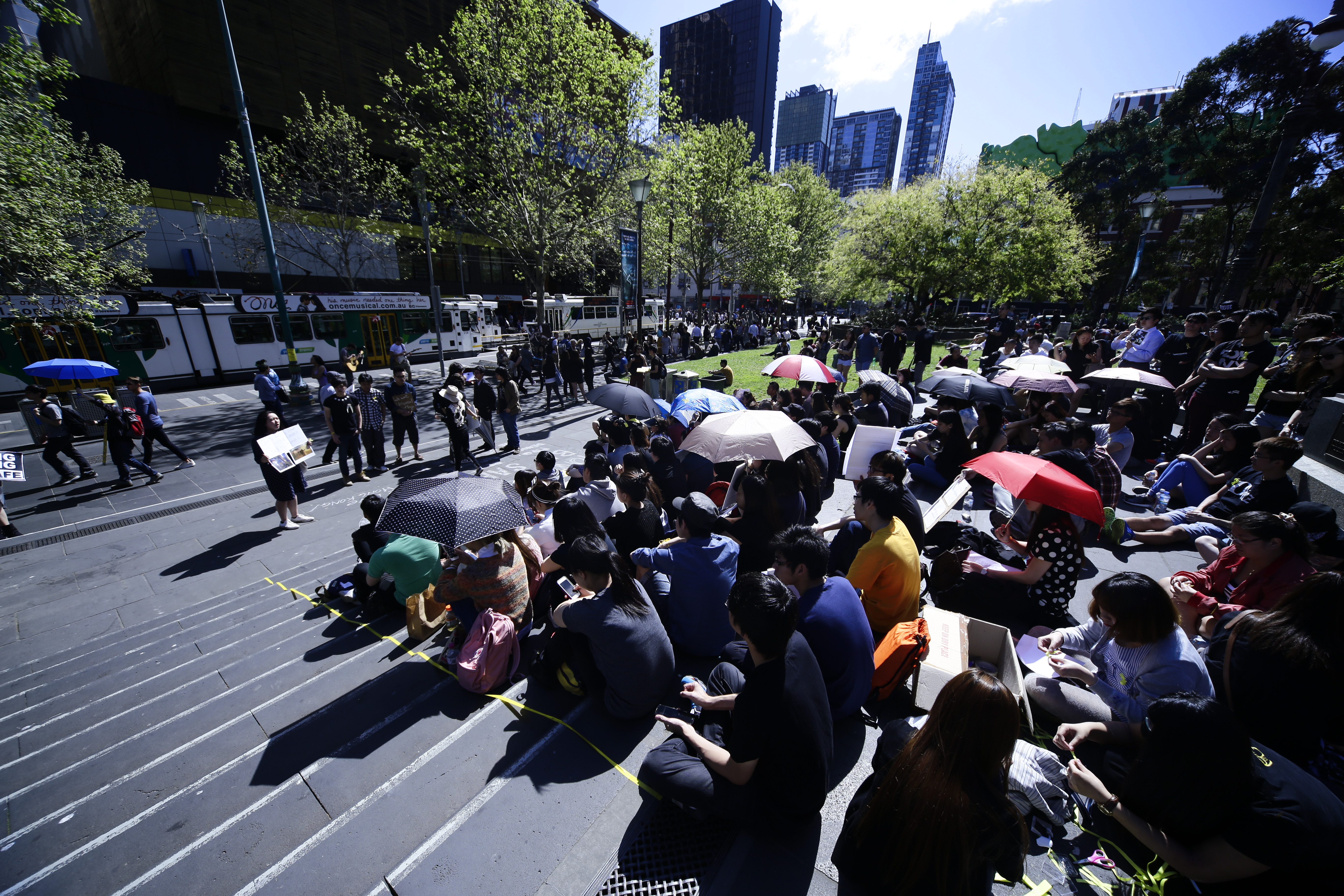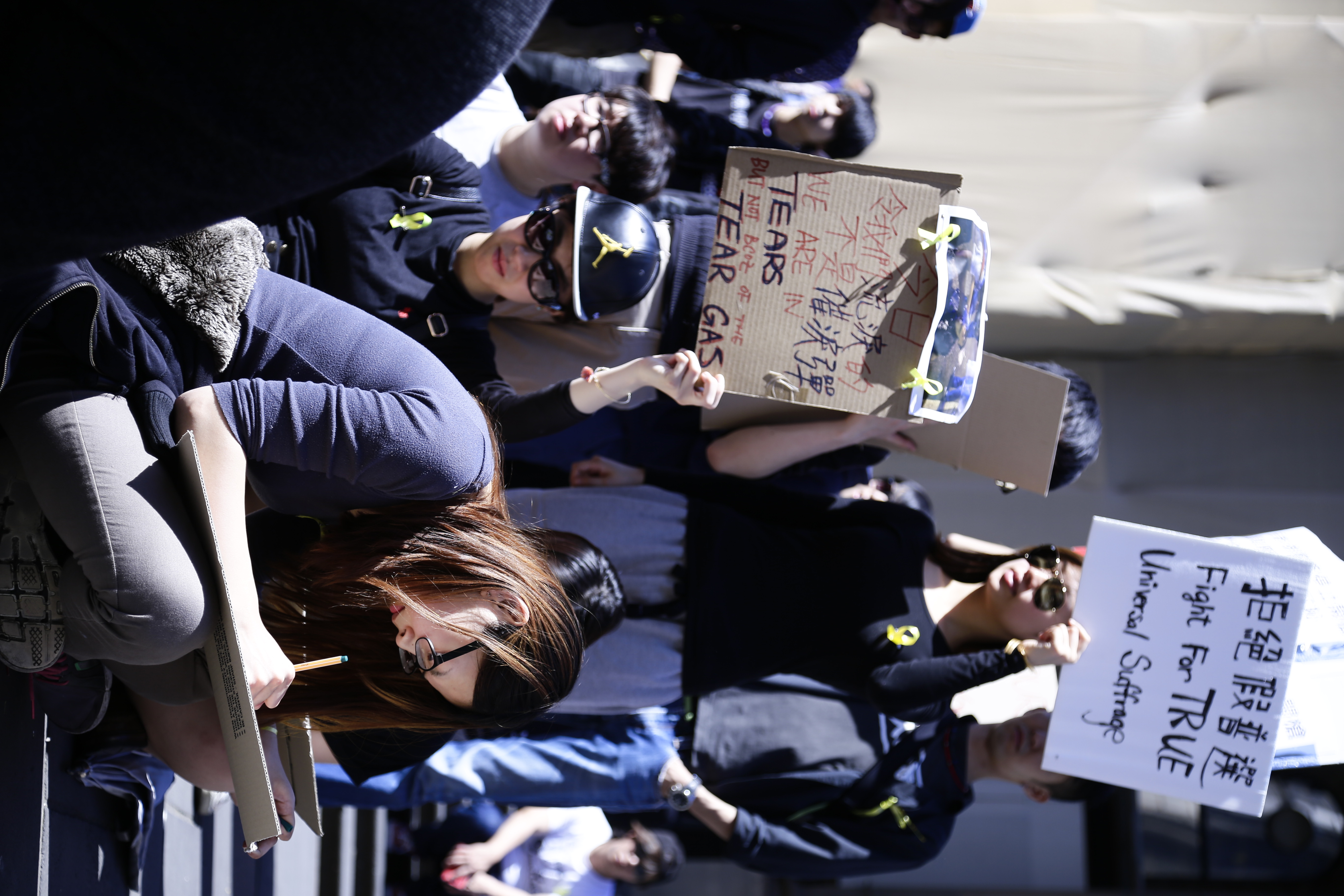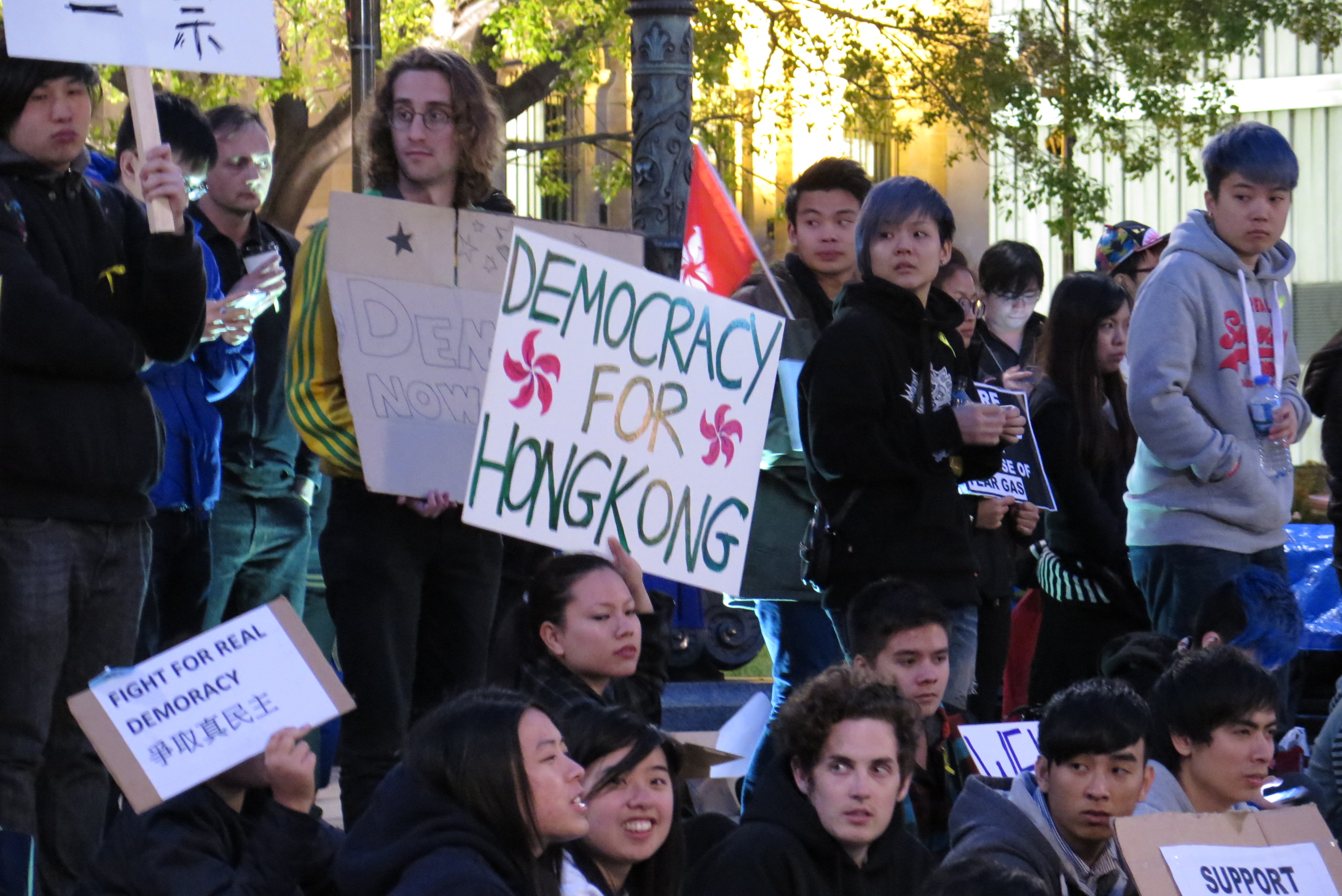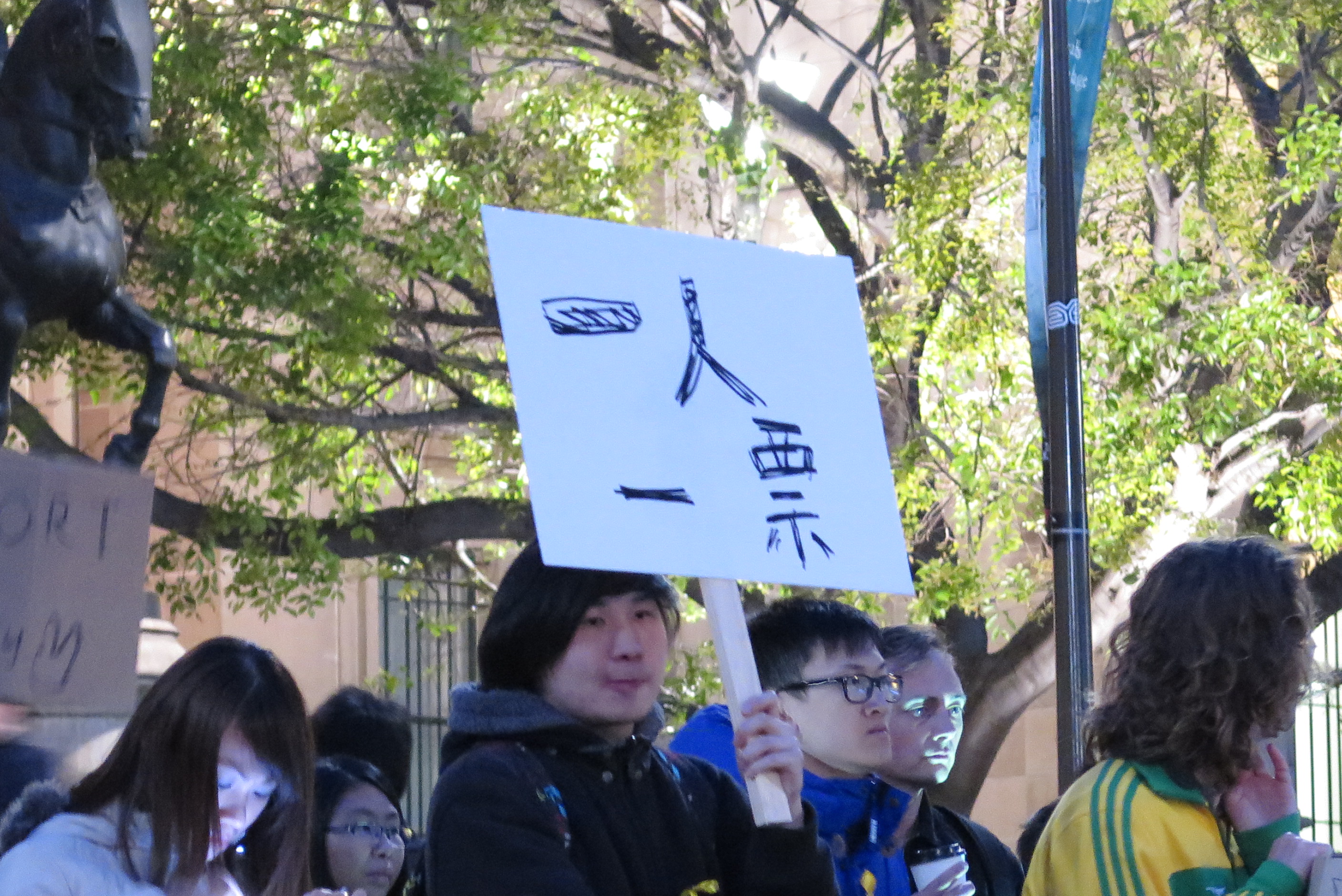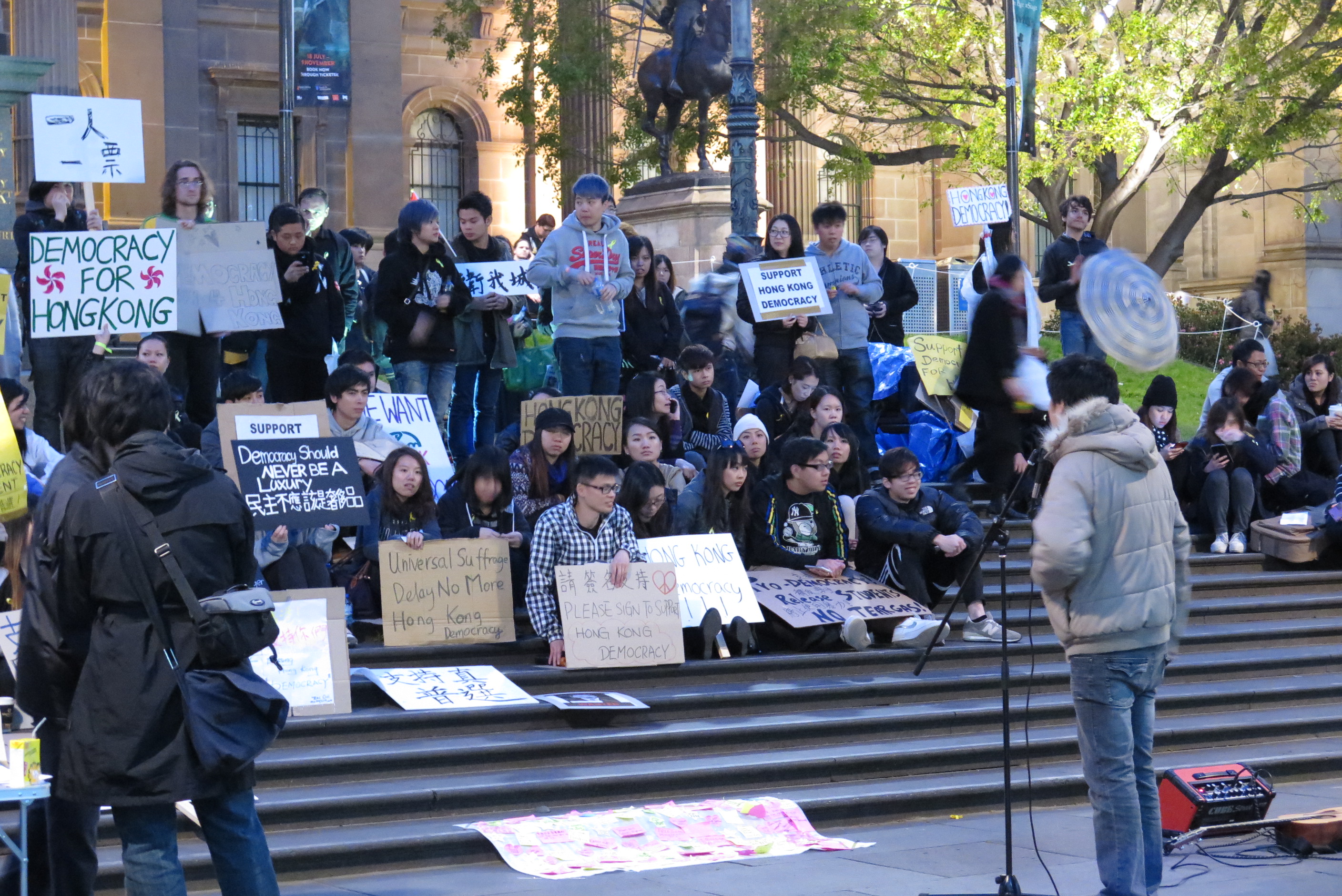
Image: Chris Best
Central, Wan Chai, Mong Kok, Admiralty.
These names conjure up images of a modern, bustling Hong Kong. A metropolis built upon a storied history, Hong Kong is no stranger to change; rapid economic growth has transformed the small port into what some call a glittering vision of China’s future.
However, this year the city may divide itself over another transformation. Intervention by the ruling Chinese Communist Party in local politics is stoking tensions and factionalising the community.
On September 26, students from the Hong Kong Federation of Students and the Scholarism group broke through to the government offices in Central and staged a sit-in. This action set off in motion weeks of protest that drew the eyes of the world to the city-state. For a country used to unrelenting flux, this event was a step above all, a time in its 172-year history when the outcome was uncertain.
Kevin Wotherspoon has been keenly watching the protests since their beginning. The demonstrations have affected the stockbroker’s work, as his office is located in Central. Shallow international media coverage would have you believe that violent confrontation between protesters and police were commonplace but Kevin tells a different story.
“It was very busy out there, and it was somewhat bizarre to be walking along highways ordinarily choked with traffic among a sea of very young faces. I have to say I felt somewhat out of place, no doubt the same feeling I’d have if I went to a One Direction or Katy Perry concert.
“Everything was very good-natured and very polite. There were water and food stations for kids to help themselves to, and even queues developing to drop stuff off. I had a bottle of water thrust into my hand by a young student, obviously concerned this sweaty westerner was suffering in the oppressive heat,” he said.
Asked what direction the protests were taking, his wife Cherie felt there was only the slightest silver lining in the storm clouds gathering over Hong Kong. She fears there may be a crackdown by the Chinese government. The duration and size of the protest make her worry that when the government does end them, it will offer no quarter.
“The government might move cautiously knowing how the sentiment is among the people now. It’s still too early to tell if there will be any softening from the Chinese government, and there could be some sort of concession from Beijing but not enough to quell the people. But at worst – and this being the most possible outcome – nothing will be done. It will be calm again and business as usual,” she said.
Echoing her sentiments, Mr Wotherspoon agreed that the Hong Kong government would take the least-violent option and let the protests fizzle out.
“It’s difficult to see students standing down over the next couple of days. In fact I see confrontation looming unless the student leaders make a concerted effort to convince demonstrators that the point has been made and that they should go home,” he said.
“The HK government may just do nothing and let the demonstration fizzle out, probably the best and most likely outcome”.
Rather than fizzling out, the protests are gaining momentum and inspiring copycat protests overseas.

Image: Kai Wong
Elle Yip is an Australian permanent resident originally from Hong Kong. She’s played a major role in organising a sit-in on the lawn of the State Library of Victoria on September 29 and 30 in support of the protests in Hong Kong.
She said that protests are neither pro- nor anti-Communist, and are instead a cry for self-determination.
“We are not arguing for anything, we just want the right to decide who is our government and we want someone who will truly represent us,” she said.
Other participants at the protest highlighted this was not a protest against Chinese rule over Hong Kong. At no point did any protester suggest a return to British ownership or a move to total sovereignty. For everyone, this was a reaction to the heavy-handed response of the Hong Kong government.
Liam Chu, a Hong Kong resident on a working holiday in Melbourne, stressed that this was not about gaining freedom over and above what they already had a year ago, but about throwing off new mainland control.
“Everyone is saying ‘Hong Kong is dying’,” he said.
“Hong Kongers used to be so proud of who they were because of our freedom and our justice system, and we’re afraid we’re losing our democratic freedoms.”
The protesters are also intimidated at the speed which the police responded, escalating from encircling students with barricades to tear gas and rubber bullets.
Aries, a Hong Kong native who flew in just hours before the protest at the State Library, had been bringing supplies to the protesters in Hong Kong the night before, and noted the atmosphere.
“There were a lot of police, and you could feel the tension in them, but protesters were peaceful and disciplined so there was no violence,” she said.
“I couldn’t see why just a couple hours after that it went from being so quiet to so violent.”
Another Hong Konger accompanying her, King Tai, spoke passionately about how the new violence was entirely the work of the state.
“The Chinese government just offered a fake election, so we started silent actions and stopworks,” he said.
“But yesterday the government and police cleared all the public places of students. The students’ reaction to this is to put their hands up and sit there. Nothing more. This is why we are angry. ”

Image: Kai Wong
No one knows how long these protests will take, or how much of an effect they would have. In recent days, students have begun to disperse, exhausted and hungry, with some of them camping out in the open for many straight. The length of the protests has also started to turn against the students, with local shopkeepers angered that they cannot return to their shuttered shops.
Mr Wotherspoon agreed that it would take a long time to win the support of the local populace.
“It is still unclear how much support these protesters really have with the general population. Society really is polarised over the democracy issue and a lot of Hong Kong takes the pragmatic view that it’s not worth the fight, and HK’s prosperity is best guaranteed with Beijing’s blessing – that is, control,” he said.

